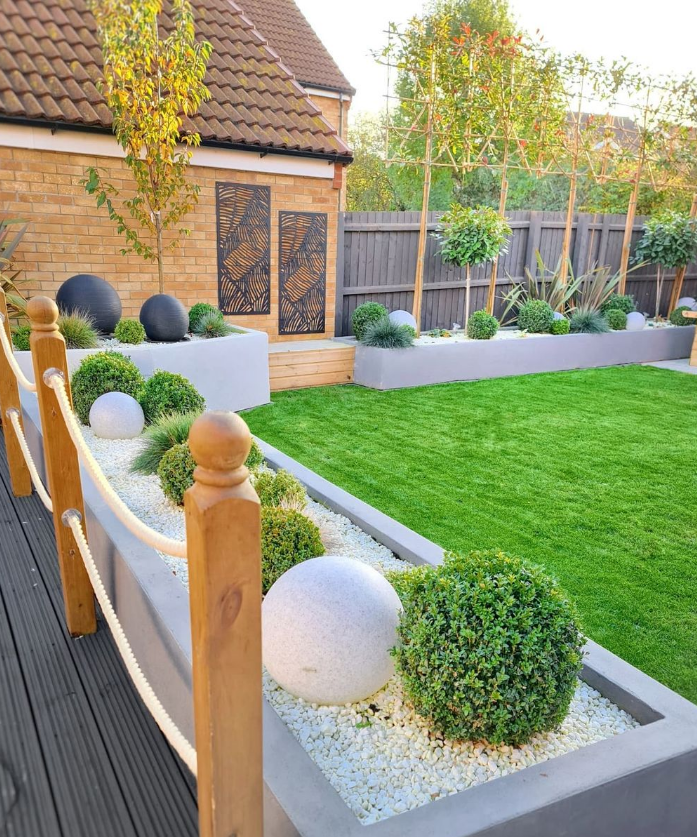Introduction
Introduction
Gardening can be a deeply rewarding experience, but not everyone has the time or energy for high-maintenance landscapes. If you’re looking to enjoy a beautiful garden without the constant upkeep, low-maintenance garden design is the way to go. In this article, we will explore the principles and tips to help you create a stunning yet easy-to-manage garden that will thrive with minimal effort.
The Appeal of Low-Maintenance Gardens
Before delving into the specifics of low-maintenance garden design, let’s understand why it has become increasingly popular:
1. Time-Saving
Low-maintenance gardens require less time and effort, making them perfect for busy individuals or those who simply want to relax in their outdoor space.
2. Cost-Effective
Reduced maintenance means fewer expenses on tools, fertilizers, and other gardening supplies, making it budget-friendly.
3. Eco-Friendly
These gardens often involve less water consumption and lower chemical use, contributing to a more environmentally friendly landscape.
Planning Your Low-Maintenance Garden
Creating a low-maintenance garden starts with thoughtful planning and design. Here are the essential steps:
1. Define Your Goals
Begin by defining your garden’s purpose. Are you looking for a peaceful retreat, a place for outdoor dining, or a colorful flowerbed? Understanding your goals will guide your design choices.
2. Choose the Right Plants
Opt for plants that are naturally hardy, disease-resistant, and well-suited to your climate. Native plants are often low-maintenance and better for local ecosystems.
3. Consider Hardscaping
Incorporate hardscape elements like stone pathways, patios, or raised beds. These features not only add visual interest but also reduce the area that needs regular maintenance.
Plant Selection and Placement
Choosing the right plants is critical to a low-maintenance garden. Here are some tips:
1. Perennials Over Annuals
Select perennials over annuals whenever possible. Perennials come back year after year, reducing the need for replanting.
2. Group Plants Wisely
Plant species with similar watering and sunlight needs together. This ensures efficient care and conserves resources.
3. Mulch Matters
Apply a layer of mulch around plants to retain moisture, suppress weeds, and maintain consistent soil temperatures.
Maintenance Strategies
While the goal is to minimize maintenance, some upkeep is still necessary. Here are some strategies to make it easier:
1. Regular Weeding
Weeding is essential in any garden. A little effort each week can prevent weeds from taking over.
2. Efficient Watering
Invest in a drip irrigation system or soaker hoses to water your garden efficiently. Consider using a timer to automate watering.
3. Pruning and Deadheading
Prune shrubs and trees as needed, and remove spent flowers to encourage new growth and prevent disease.
Garden Design Ideas
Now, let’s explore some low-maintenance garden design ideas to inspire your outdoor space:
1. Xeriscaping
Xeriscaping involves using drought-tolerant plants and reducing the need for supplemental watering. Xeriscaping is the art of designing gardens that thrive on minimal water. By selecting drought-tolerant plants and utilizing efficient irrigation methods, you can create a garden that’s both eco-conscious and effortlessly elegant.
2. Rock Gardens
Create a stunning rock garden with hardy succulents and alpine plants. Rocks require virtually no maintenance. Rock gardens are a masterclass in minimalism. Complement hardy succulents and alpine plants with carefully placed rocks, creating a low-maintenance masterpiece that mimics nature’s rugged charm.
3. Container Gardens
Opt for container gardening with potted plants and flowers. It’s easy to move and rearrange them as needed. Container gardening offers the freedom to rearrange your garden with ease. Potted plants and flowers can be moved around to suit your evolving preferences, all without breaking a sweat.
Conclusion
A low-maintenance garden can be a source of joy and relaxation, providing you with a beautiful outdoor oasis without the constant toil. By carefully planning your garden, choosing the right plants, and implementing efficient maintenance strategies, you can enjoy the benefits of a stunning garden while freeing up more of your time for leisure and relaxation. Start your journey to a low-maintenance garden today and watch it flourish with ease.
References:




